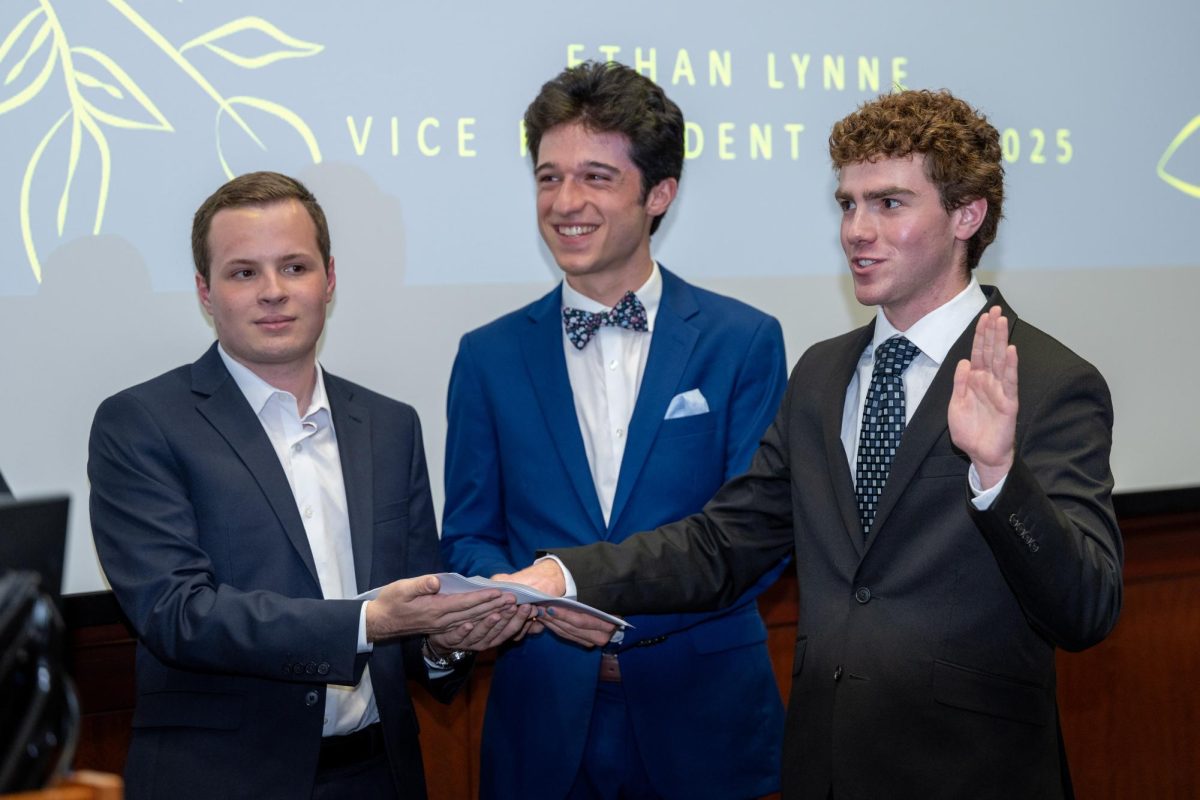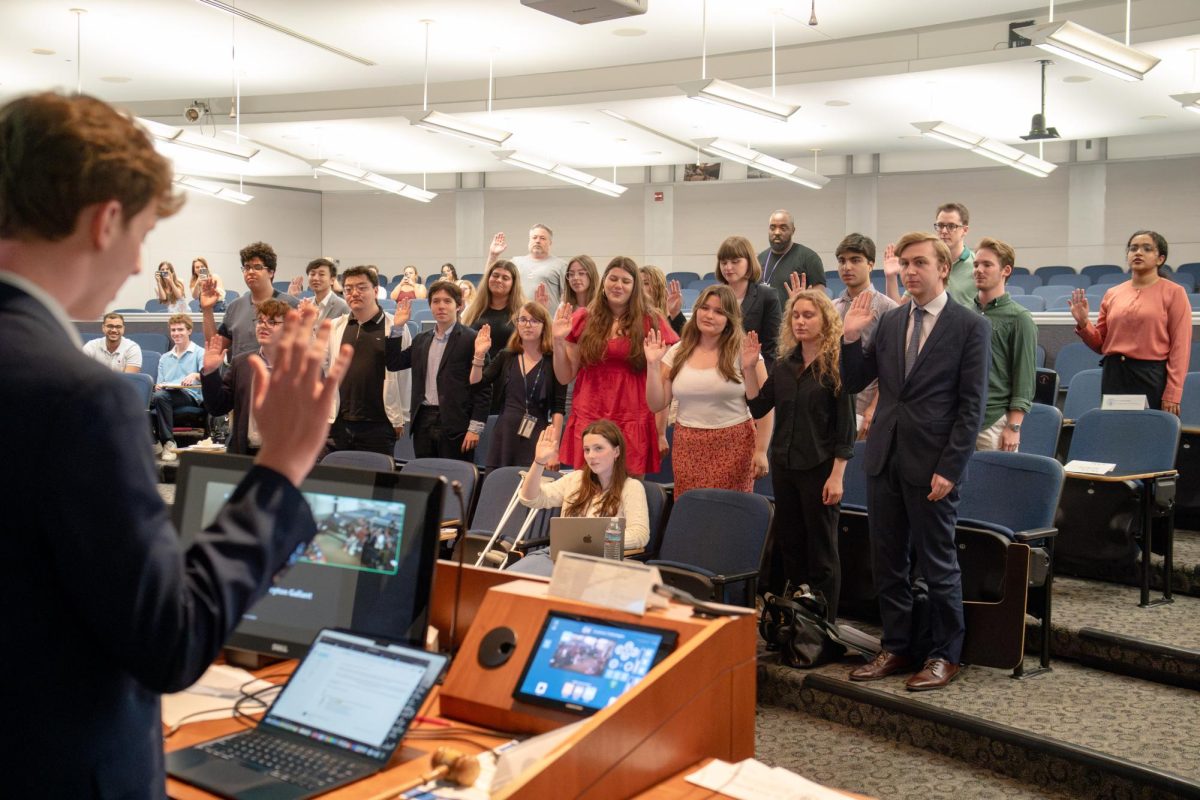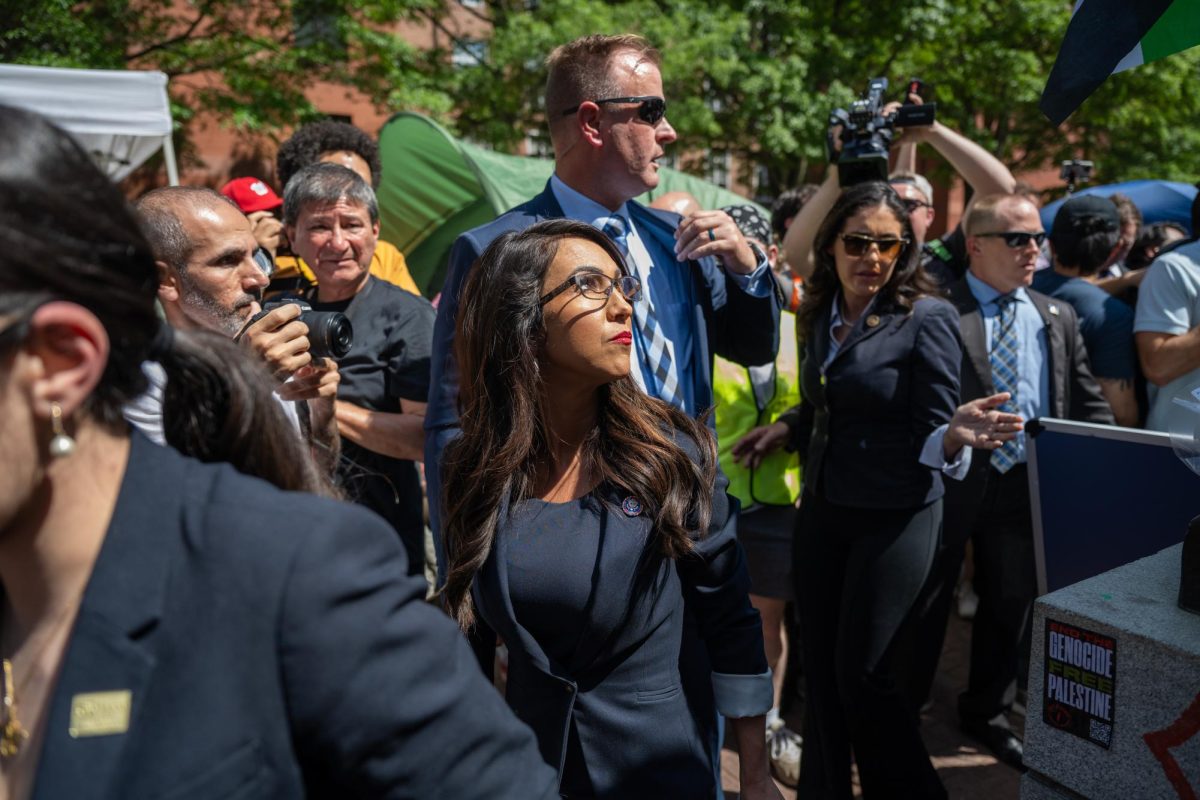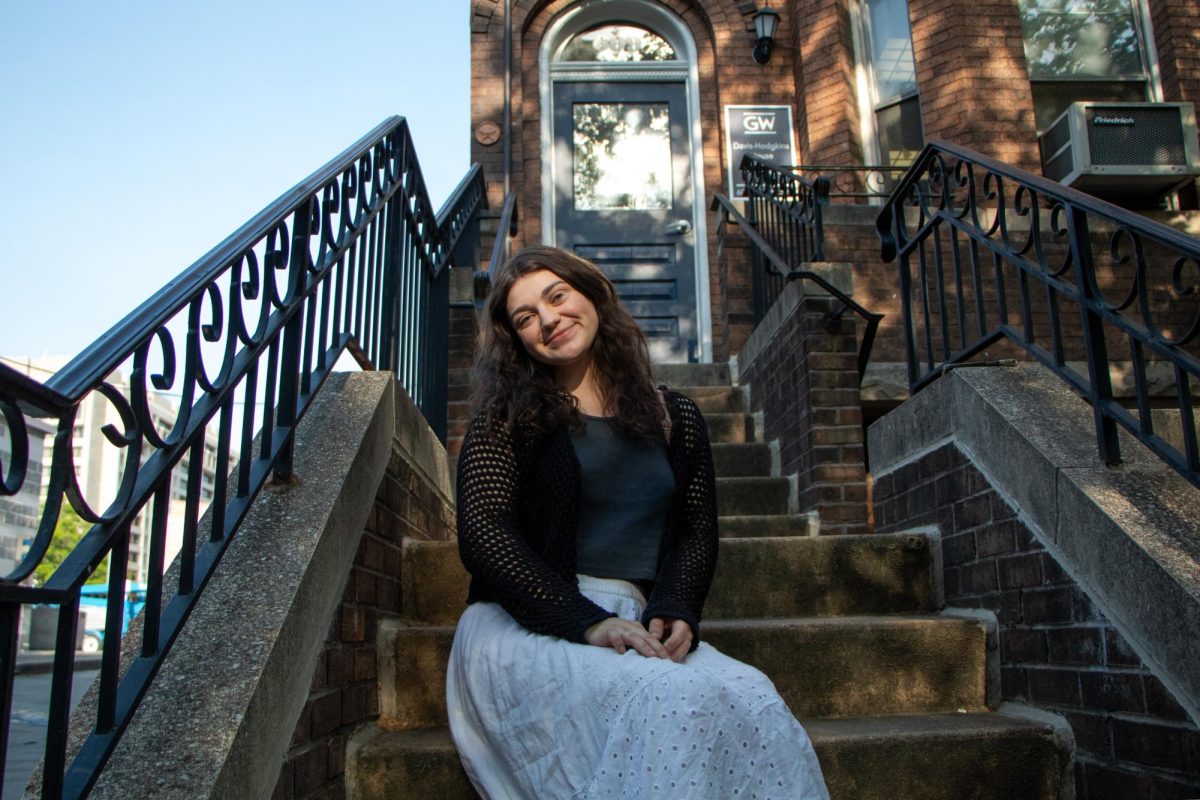More than two-thirds of voters supported a smoke-free barrier around campus buildings, but plans for implementation and enforcement of the potential policy remain unclear.
The ballot referendum, brought to the SA Senate by Sen. Josh Goldstein, CCAS-U, with input from Colonials for Clean Air, proposes a 25-foot smoking ban around building entrances, in line with a District-wide smoking restriction.
The vote carries no weight other than leverage for the SA to lobby administrators to consider the policy, and is used to determine whether the senate should create a nonbinding resolution to support the measure.
“Now that the students have voted, it is our job to accelerate the process,” Goldstein said.
He plans to begin discussions with SA president John Richardson and University officials to talk about implementation, and is confident that “the policy should be in full swing by next semester at the latest.”
The city’s smoking law was expanded in July 2010 to allow all property owners and business managers to prohibit smoking within 25 feet of their building. The law has drawn criticism across the District because it does not enforce fines or legal consequences for smokers who break the rule.
Goldstein acknowledged that there is “a big enforcement issue” on campus, calling for extended efforts from University police officers in addition to student-to-student enforcement.
GW’s smoking policy, which is up for review in May 2012, allows buildings to enforce smoking restrictions near entrances if there are “concerns over air quality or the presence of combustible materials.” No GW buildings currently implement this policy.
Associate Dean of Students Tim Miller remains skeptical about the implementation of the policy, citing concerns of enforcement and a greater presence of smokers in open areas like Kogan Plaza if they are banned from entrances to buildings like Gelman Library.
He raised questions about where the University would direct students and faculty who do smoke, comparing the policy to requiring everyone to recycle without providing recycling bins.
“People still have the right to smoke,” he said. “You’re basically saying the only places you can smoke is the middle of the street.”
Although more than 66 percent of those who voted in the referendum expressed support, those votes only represent about 12 percent of the about 25,000 students at GW.
“All the people who have to make this happen didn’t participate in the election,” Miller said, adding the vote also does not represent administrators’ opinions.
Colonials for Clean Air said they are encouraged by the vote, but realize they must make big strides with the University to move forward with their aim.
“We will continue lobbying for our cause, gaining support of stakeholders, to have a strong backing when presenting to administration,” Neela Satyanarayana and Jahmeilia Paul, members of Colonials for Clean Air, said in a joint statement.







